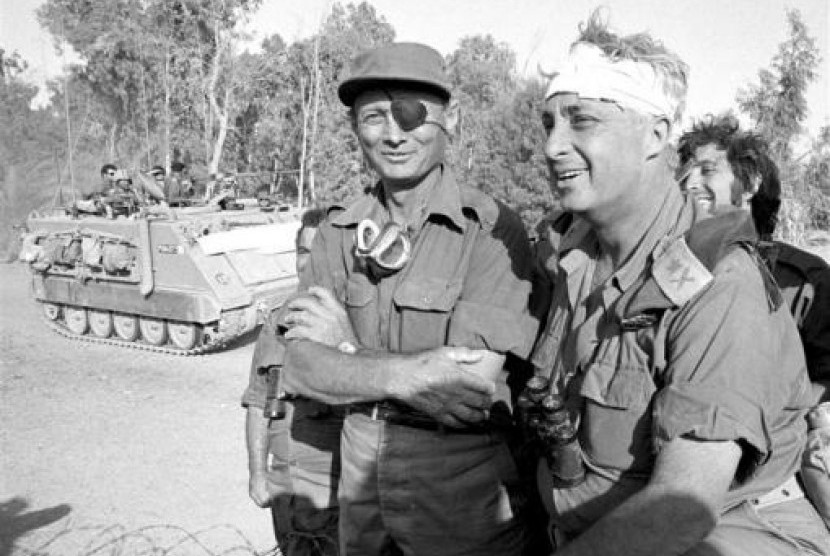REPUBLIKA.CO.ID, JERUSALEM - Israel's Ariel Sharon joined the pre-state Haganah Jewish underground at the age of 14. Wounded as a young officer in the 1948 war of Israel's founding, he went on to lead key commando units and crafted a policy of reprisals -even at the cost of innocent lives- for cross-border Palestinian guerrilla raids.
Passed over for chief-of-staff, Sharon left the military in the summer of 1973. Three months after he quit, he was back as a reservist-general, commanding troops that launched a counter-offensive that routed Egyptian forces in 1973 war. A photo of Sharon in the desert, in battle fatigues and with his head bandaged, became an iconic image of the conflict.
He helped form the Likud party, which courted Israel's Jews of Middle Eastern descent and rose to power in the 1977 election, ending the dominance of the "European" Labour Party. Appointed agriculture minister, Sharon used that post and his chairmanship of a ministerial settlements committee to break ground on new settlements - helping to earn him the nickname "Bulldozer".
As defence minister under Prime Minister Menachem Begin, Sharon masterminded the 1982 invasion of Lebanon, one of Israel's most divisive campaigns. What started as a stab against Palestinian guerrillas on the border evolved into a murky and costly bid to install a government more friendly to Israel in Beirut.
Arab hatred of Sharon crested with the massacre of hundreds of Palestinian civilians in the Lebanese refugee camps of Sabra and Shatila by Israeli-allied Christian militiamen. He denied wrongdoing but was eventually forced to resign as defence chief in 1983 after an Israeli probe said he bore "personal responsibility" for not preventing the bloodshed.


